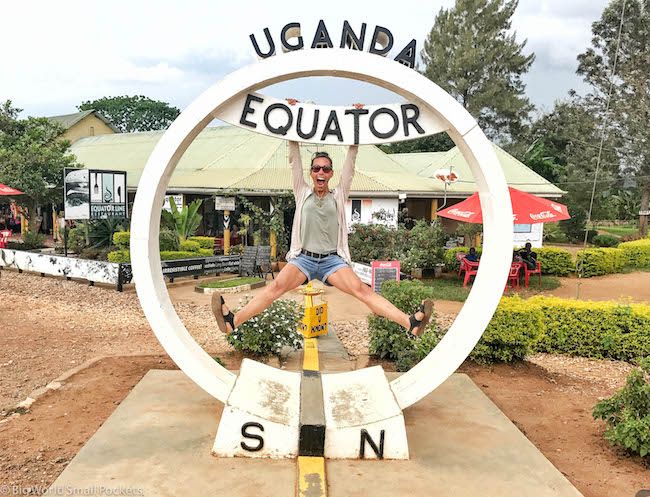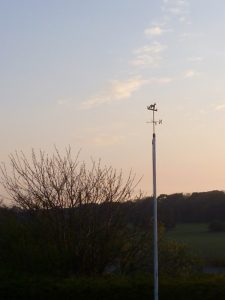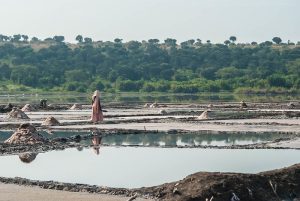Uganda, known as the “Pearl of Africa,” offers solo travelers a mix of adventure, culture, and breathtaking natural beauty. From gorilla trekking in lush rainforests to exploring bustling city markets and cruising along the Nile River, the country has something for every type of traveler. With its welcoming people, affordable costs, and unique attractions, Uganda has become an increasingly popular destination for independent explorers.
Is Uganda safe for solo travelers?
Uganda is generally safe for solo travelers, but like any destination, awareness and preparation are essential. Urban areas such as Kampala and Entebbe are busy and vibrant, but you should take standard precautions such as avoiding walking alone at night, keeping valuables secure, and using reputable transport services.
In rural and national park areas, safety risks are minimal when traveling with licensed guides and tour operators. Wildlife encounters, especially during safaris or gorilla trekking, are managed with strict safety protocols. Staying updated with travel advisories and following local guidance ensures a safe and enjoyable trip.
How do you get around Uganda as a solo traveler?
Transportation in Uganda offers several options for solo travelers:
- Matatus and shared taxis: Affordable minibuses connecting towns and cities.
- Boda bodas (motorcycle taxis): Convenient for short trips within cities, but helmets are essential for safety.
- Long-distance buses: Reliable for intercity travel, with companies like Link Bus and Modern Coast offering scheduled services.
- Private car hire: Recommended for national park visits or remote areas, with options to hire a driver-guide.
- Domestic flights: Useful for reaching distant locations quickly, especially for safaris.
While public transport is cheap, private options are safer and more comfortable for solo travelers carrying luggage or expensive equipment.
What is the best time to visit Uganda for solo travel?
The best time to visit Uganda is during the dry seasons—from December to February and June to August. These months offer ideal conditions for wildlife viewing, trekking, and outdoor activities. Roads are more accessible, and national parks are less muddy, making travel easier for solo visitors.
The wet seasons (March–May and September–November) bring lush green landscapes and fewer tourists, but they can make transportation more challenging due to muddy or flooded roads.
What are the best places to visit in Uganda for solo travelers?
Uganda has diverse destinations that appeal to independent travelers:
- Kampala: The capital city offers cultural attractions, markets, and nightlife.
- Jinja: Known as East Africa’s adventure capital, offering white-water rafting, kayaking, and bungee jumping on the Nile River.
- Bwindi Impenetrable National Park: A UNESCO World Heritage site famous for mountain gorilla trekking.
- Murchison Falls National Park: Offers game drives, boat cruises, and views of the powerful falls.
- Kibale National Park: Known for chimpanzee tracking and rich biodiversity.
These locations provide a mix of adventure, culture, and relaxation opportunities for solo travelers.
How much does it cost to travel solo in Uganda?
Uganda is an affordable destination compared to many African countries. Average daily costs for solo travelers can range from $50 to $100, depending on accommodation and activities.
- Budget travel: $20–$50/day (hostels, public transport, street food).
- Mid-range: $50–$150/day (guesthouses, private transport, guided tours).
- Luxury: $200+/day (high-end lodges, private safaris, domestic flights).
Activities such as gorilla trekking are significant expenses, with permits costing $700 in Uganda.
Where can solo travelers stay in Uganda?
Accommodation for solo travelers ranges from budget hostels to luxury lodges:
- Kampala and Entebbe: Backpacker hostels, budget hotels, and guesthouses.
- National park areas: Safari lodges, eco-lodges, and tented camps.
- Jinja: Riverside hostels and adventure lodges catering to solo adventurers.
Many hostels and guesthouses organize group tours, making it easy to meet other travelers and share costs for activities.
What activities are best for solo travelers in Uganda?
Solo travelers in Uganda can enjoy:
- Gorilla trekking in Bwindi Impenetrable National Park.
- Chimpanzee tracking in Kibale National Park.
- Game drives and boat safaris in Murchison Falls National Park.
- White-water rafting in Jinja.
- Cultural tours in Kampala and rural villages.
These activities are safe and often group-based, making them ideal for meeting other travelers.
Can solo travelers go gorilla trekking in Uganda?
Yes, solo travelers can go gorilla trekking, and they often join a group on the day of the tre k. Permits must be booked in advance through the Uganda Wildlife Authority or a licensed tour operator. Trekking groups are small (maximum of eight people), ensuring an intimate experience.
Guides and rangers accompany every trek, ensuring safety and following strict conservation protocols.
What safety tips should solo travelers follow in Uganda?
Key safety tips include:
- Use reputable transport services and avoid traveling at night.
- Keep cash and valuables secure.
- Stay updated on travel advisories.
- Dress modestly in rural areas to respect cultural norms.
- Carry a copy of your passport and important documents.
These measures help minimize risks and ensure a smooth travel experience.
How can solo travelers meet other travelers in Uganda?
Solo travelers can connect with others through:
- Hostels and guesthouses with communal spaces.
- Group tours for safaris, trekking, and adventure activities.
- Travel forums and apps like Backpacker Uganda or Couchsurfing events.
- Local adventure hubs in Jinja and Kampala.
Group activities not only enhance the experience but can also reduce costs.
Is Uganda safe for solo female travelers?
Uganda is generally safe for solo female travelers who take standard precautions. Wearing modest clothing, especially outside urban centers, helps avoid unwanted attention. Using registered taxis or trusted tour operators is advisable, particularly at night.
Many female travelers report positive experiences due to Uganda’s hospitable culture, but vigilance in unfamiliar areas remains important.
What cultural tips should solo travelers know in Uganda?
Understanding local customs makes travel more rewarding:
- Greetings are important; a handshake is common.
- Dress conservatively in rural areas.
- Ask permission before taking photos of people.
- Respect religious practices, especially in predominantly Muslim regions.
Adapting to local etiquette fosters positive interactions with residents.
How is public transportation in Uganda for solo travelers?
Public transportation is affordable but can be challenging for first-time visitors. Matatus and boda bodas are widely available but may lack safety features. For comfort and security, solo travelers often prefer private hires or shared tourist shuttles for longer distances.
For intercity trips, bus companies like Link Bus and Mash Poa provide reliable services between major towns.
Are guided tours in Uganda good for solo travelers?
Guided tours are highly recommended for solo travelers, especially for safaris, trekking, and rural exploration. Tours provide safety, local knowledge, and logistical support, making it easier to navigate remote areas.
Many operators offer small-group tours that allow solo travelers to join without paying for private arrangements.
What are the top adventure activities for solo travelers in Uganda?
Uganda offers a variety of adventure activities for solo travelers:
- White-water rafting and kayaking in Jinja.
- Hiking in the Rwenzori Mountains or Mount Elgon.
- Wildlife safaris in Queen Elizabeth National Park.
- Birdwatching in Mabamba Swamp and Semuliki National Park.
These activities provide adrenaline-pumping experiences while showcasing Uganda’s rich biodiversity.
Final Thoughts
Uganda is a rewarding destination for solo travelers, offering a combination of safety, affordability, and unforgettable experiences. Whether you’re trekking to see mountain gorillas, rafting down the Nile, or exploring vibrant cities, Uganda delivers adventure and cultural richness in equal measure.
By following safety guidelines, choosing reputable operators, and respecting local customs, solo travelers can enjoy everything the “Pearl of Africa” has to offer—confidently and independently.




